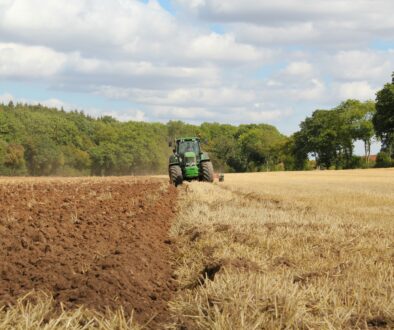End-of-Term compensation for improvements under the Agricultural Tenancies Act 1995
End-of-Term compensation for improvements under the Agricultural Tenancies Act 1995
Improvements are the only matters for which a Tenant under a Farm Business Tenancy can claim compensation at the end of the term.
For these purposes a ‘Tenant’s Improvement’ means:
- any physical improvement made on the agricultural holding or
- any intangible advantage obtained for the holding and which becomes attached to it, including for example planning permission (provided that it is not personal to the Tenant. However, Basic Payment Scheme entitlements do not attach to the holding, and so are unlikely to qualify as Tenant’s Improvements)
provided that, in each case, the improvement or advantage is made or obtained by the Tenant’s own effort, or wholly or partly at the Tenant’s own expense.
If a Tenant quits the holding on termination of a farm business tenancy, compensation is in general terms payable for any Tenant’s Improvement that remains on or attached to the holding, provided that it was made with the Landlord’s written consent (whether given unconditionally, or on condition that the Tenant agrees to a specified variation to the terms of the tenancy relating to the improvement. Some tenancy agreements contain a clause giving general consent to a particular type/class of improvement (e.g. improvements consistent with the tenant’s permitted use of the holding).
Where the relevant improvement consists of a planning permission under the Town and Country Planning Act 1990, the Tenant is not entitled to compensation unless:
- the Landlord consented in writing to the planning application being made
- the consent related to lawful development by the Tenant, and
- the planning permission has not been fully implemented before termination
The Tenant will lose his or her right to compensation if the Tenant begins to make the improvement before obtaining the Landlord’s consent. The Tenant’s right to compensation can be negated, or made less advantageous, if the Landlord were to fail to give consent, either promptly or at all, or required that the terms of the tenancy should be varied as a condition of giving consent.
In those circumstances, the Tenant can refer the matter to arbitration, subject to certain time constraints, provided that the Tenant has not started to make the improvement. The arbitrator will consider the terms of the tenancy and any other relevant circumstances in determining whether it is reasonable for the Tenant to provide the improvement and, if so, whether it is reasonable for the Landlord’s consent to be granted or refused. If the Landlord unreasonably refuses consent, the arbitrator may grant consent instead, but has no power to grant conditional consent.
Any claim for compensation must be made by written notice within two months of the date on which the relevant tenancy ends. There is no required form of notice as such, but it must specify ‘the nature of the Tenant’s claim’. If settlement of the claim by written agreement is not reached within four months of termination, either party can refer the matter to arbitration.
Many farm tenants will occupy holdings under a series of successive tenancies. Here, the Landlord and the Tenant may, but are not obliged, to agree the amount of compensation due to the Tenant in respect of a Tenant’s Improvement at the end of the particular tenancy during which the improvement was made. If they do so, the Tenant cannot then claim compensation in respect of that improvement at the end of any subsequent tenancy. However, the Tenant can ‘carry forward’ the right to compensation until the end of the final tenancy.
Amount of compensation
The Tenant is entitled to an amount of compensation equal to the increase that the Tenant’s improvement has made to the value of the holding as land comprised within a farm business tenancy.
If the improvement would lead to a higher rent becoming payable, the increase is capitalised over the lifetime of the improvement and constitutes the compensation payable to the tenant.
If the improvement:
- was the subject of a written agreement between the Landlord and the Tenant under which the Landlord supplied any benefit to the Tenant in consideration for the provision of the improvement, or
- was or will be the subject of a grant to the Tenant out of public money (but only for improvements not consisting of planning permission)
the amount of compensation payable will be reduced by the proportion which the amount of the benefit or grant bears to the total cost of providing the improvement.
The Landlord and the Tenant can agree in writing that the amount of compensation payable for a Tenant’s Improvement not consisting of planning permission, is limited to the lesser of the amount determined in accordance with a statutory formula and the cost to the Tenant of providing the improvement, allowing the Landlord to know in advance the potential cost of providing consent to a particular improvement.
Contracting out
The right to compensation cannot be excluded by agreement, although the amount of it may be capped (as above).
(This article is not intended to be comprehensive or to provide specific legal advice. It should not be relied upon in the absence of advice given in relation to particular circumstances.)
For further information contact nlinehan@bowcockcuerden.co.uk




